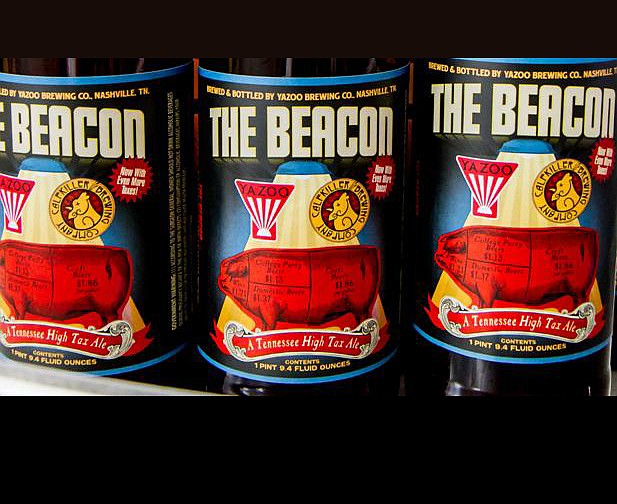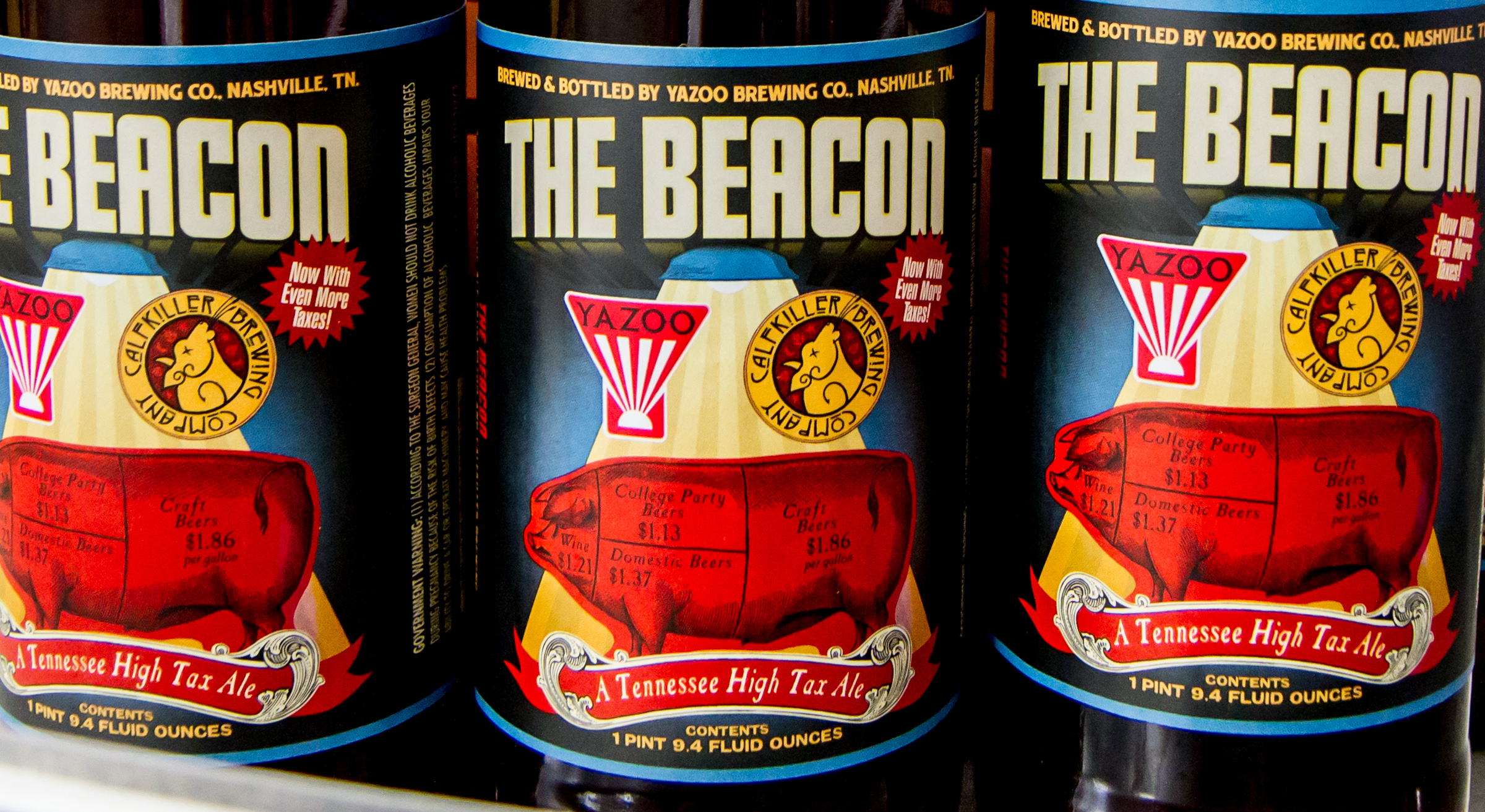CHATTANOOGA BREWERIES
• Big River Grille and Brewing Works• Chattanooga Brewing Co.• McHales Brewhouse• Moccasin Bend Brewing Co.• The Terminal
NASHVILLE - A special joint offering from Tennessee craft brewers Yazoo and Calfkiller features an unusual sales pitch to beer aficionados: "Now With Even More Taxes!"
The new product going on sale this week is the latest effort among brewers to draw attention to Tennessee's highest-in-the-nation tax scheme for beer, which high-end brewers argue disproportionately affects their ability to compete.
The beer is called "The Beacon: A Tennessee High Tax Ale," and urges consumers to "Cut the red tape, pop the cap, and enjoy this oppressively refreshing ale."
A legislative proposal to freeze the state's beer tax cleared its first committee last week, and the brewing industry hopes it can avoid the fate of a bill to allow supermarket wine sales. The wine measure appeared to be gathering momentum before its surprise defeat in a House committee last week.
Tennessee's beer taxes outstrip any other state's because the bulk of the levy is based on price rather than volume. The more a beer costs, the higher the taxes that must be paid to buy it.
"We're fine with paying our fair share," said Linus Hall, who runs Nashville-based Yazoo. "But I don't think the taxes on a six-pack of Yazoo or Sierra Nevada or Blackstone should be so much higher than a six-pack of Natural Lite."
Supporters stress that the change in the law wouldn't change significantly the taxes charged on beer but would prevent them from growing further as inflation and price increases occur over time.
"Everything gets more expensive," said Don Sergio, who runs Sparta-based Calfkiller with his brother, Dave. "The percentage-based tax, we're done with that."
In Tennessee, brewers pay federal and state taxes per 31-gallon barrel, and then a 17 percent tax is charged to wholesalers based on price. Consumers then pay as much as 9.75 percent in sales taxes on top of the previous charges.
The proposal would convert the 17 percent tax to standard $35 per barrel, regardless of the final price of the product.
"If this thing works out, it will at least cap it where it is now," said Calfkiller's Dave Sergio.
The proposal has strong support across the brewing industry, from small startup craft brewers to the makers of Budweiser and Miller beers.
A main challenge for supporters will be to convince skeptical lawmakers their proposal won't hurt the budgets of local governments, which receive about $125 million in annual revenues from the tax based on the price of the beer. The bill is structured to maintain current levels but would halt automatic increases.
Another group of lawmakers tends to vote against any bill perceived to make alcohol more available. It includes Rep. Richard Floyd, who was the lone vocal opponent of the measure when it cleared the House Local Government subcommittee last week.
"I see this as an attempt just to lower the price of beer," said Floyd, R-Chattanooga.
Rep. Cameron Sexton, R-Crossville and the bill's main sponsor, tried to assure Floyd and others that the price of beer won't be coming down if the bill is enacted.
"Tennessee will still be the highest-taxed state in the nation on beer," he said. "That is not going to change."
According to the Tennessee Malt Beverage Association, the tax on a gallon of wine is $1.21, while the tax on a gallon of premium beer like Bud Lite averages $1.37. The tax on craft beers and imports comes to about $1.86 per gallon.
Some of those statistics are emblazoned on a red pig featured on the label of the new Beacon beer.
"We're making styles of beer that use more expensive ingredients, and we use a whole lot more of them," said Yazoo's Hall. "Anything that brings us closer to the average tax -- even if it was still the highest in the country -- would be a big improvement."

